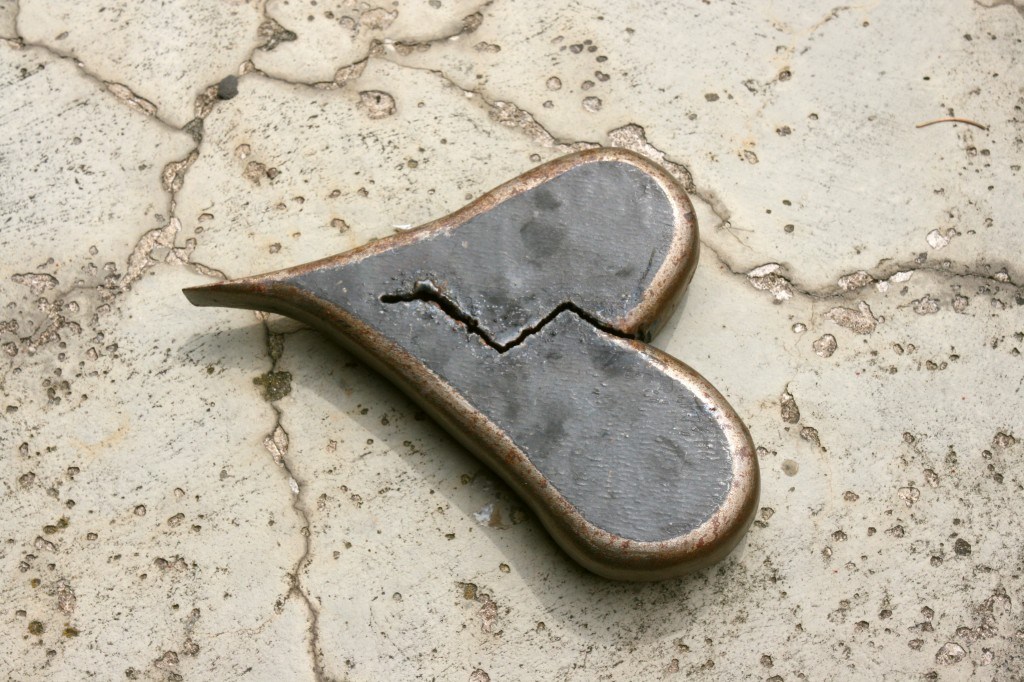Learn To Heal Your Broken Heart
 There are many people these days who avoid love because deep down inside they don’t believe they can survive a broken heart. They don’t believe in their natural capacity to heal. Plus, they may have had certain love-life disappointments in the past that convinced them to avoid love now in the present. The real tragedy is having the ability to heal without knowing it and avoiding love as a consequence.
There are many people these days who avoid love because deep down inside they don’t believe they can survive a broken heart. They don’t believe in their natural capacity to heal. Plus, they may have had certain love-life disappointments in the past that convinced them to avoid love now in the present. The real tragedy is having the ability to heal without knowing it and avoiding love as a consequence.
We human beings possess certain psychological resources that exist inside and emerge more easily when we know that they are there and believe in them. Too often we are simply ignorant of our internal capacities and have a very hard time relying upon them in time of need. This is certainly true of our capacity to heal a broken heart. In our current lives no one teaches us about our innate ability to heal ourselves emotionally. Like the physical processes that heal a cut or other physical injury, the mind is capable of healing itself as well. As with physical healing, the proper ‘conditions’ must be established to promote emotional healing. What are the proper conditions for healing a broken heart?
Now for those of you brave enough to have read this far, I’m going to warn you. What you are about to read will no doubt be at odds with how you like to think of your love-life experience. Keep an open mind and tell yourself that alternative views are good for you to consider. You just might have missed something. As I mentioned earlier, the first condition is to acknowledge that you have this built-in capacity to heal a broken heart. It came with you when you came into this world. You’d be surprised at how important the simple act of knowing something exists really is to make it manifest in your experience. This simple act of believing is an act of self-creation.
Next is understanding the importance of grief as the natural flip side of love. The opposite of love is never hate, it’s grief. Grief indicates the absence of a specific love in your emotional life. Someone you love is gone or the love you had for someone is gone, either one. Grief is normal and natural. Grief is not sickness, however, it frequently gets associated with the clinical condition called depression. If a broken heart is complicated by other issues like unresolved losses from the past, grief can be mixed with depression.
For our purposes, let’s make it simple and talk about uncomplicated grief in response to a broken heart. Here’s the thing with grief, no one teaches us how to grieve. In fact, when we’re young, adults usually hide their grief from us with some cockamamie excuse like, its no good to break down in front of the children. How about showing children how to cry over a loss so that when they have to cry over a loss later on in life they will have some personal experience with it? What ends up happening is adults are forced to learn how to grieve from scratch or they’ll begin to suffer symptoms of depression or other mental illness. This is not always easy.
Once you get over the unfamiliarity of grief and notions like its weak to grieve, you have to think about how to integrate this natural experience into everyday life when its necessary to do so. One of the most common forms of this is when someone we love dies or leaves. Grieving on and off as needed can allow a person to remain functional while attending to his or her emotional life when the need arises. The one thing to remember is that the emotion of grief has a beginning, middle, and end.
If you are open to the experience it comes and goes and does not collect and become overwhelming. When you are grieving a loss you are in the process of letting go of an attachment to someone you loved who is now gone. This is the emotion that comes with letting go. If you are open to it and let it happen it eventually expires. Remember, it is not a sign of weakness to grieve, quite the opposite. It is a sign of weakness to avoid grief.
If there is lingering resentment or anger involved in the experience of getting your heart broken, remember that these feelings block healing. The feelings that permit healing are sadness and hurt. When you are open to these more vulnerable emotions your heart can heal and it becomes possible to forgive someone who hurt you while eventually eroding the memory of the experience. This may sound weird to you, forgiveness is hard enough, but this guy is asking me to forget as well? Why? For one thing, real forgiving always comes with a measure of forgetting.
Forgetting means that you have healed your heart enough to get past the defensive preoccupation that comes whenever the heart has been injured or broken. Defensiveness, like avoiding love or doing things to protect your heart from vulnerability, if allowed to remain in place can block a person from ever being receptive to love again. When you forgive you let go of your emotional reaction to being hurt. When you forget you let go of your defensive reaction to being hurt. When you no longer have a negative feeling about your former lover and your memory for the heart break has gotten a little vague you’ll know you’ve healed your broken heart. Dr. T. Jordan
